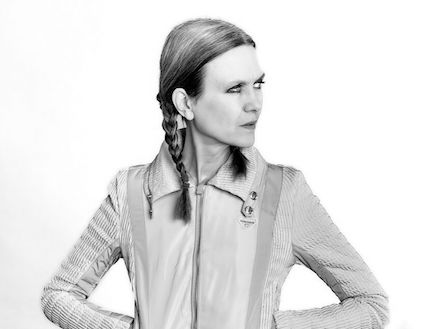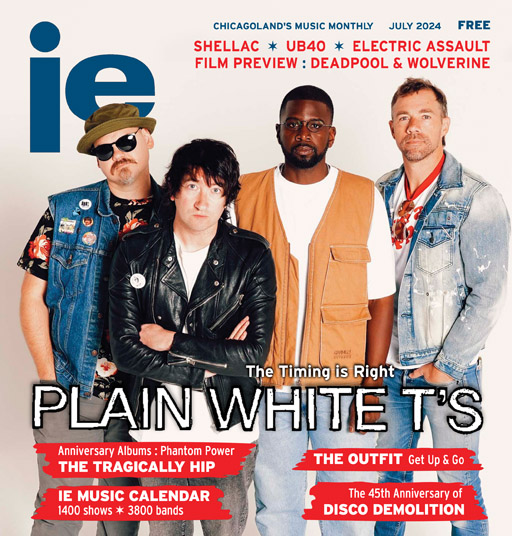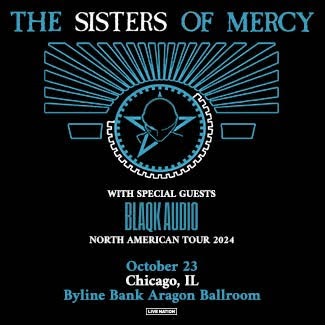Cover Story: Juliana Hatfield • Can’t Get it Out of My Head
It was a great lesson to learn during the pandemic: Sometimes, if you’re open to it, the Universe will reward you with small, subtle signs that everything — despite any outward appearances to the contrary —is alright with the world at that particular moment. Even something as insignificant as a digital clock can prove monumentally uplifting when glimpsed at significant hours, like 12:34, your birthday (5:11 for me), or the purportedly magical reading of 11:11. And during lockdown Hey — you took those feel-good messages anywhere you could find ‘em. So naturally, it made perfect symmetrical sense to choose as possibly my last-ever interview after 46 heartfelt years of rock journalism my old acquaintance Juliana Hatfield, who I’ve helped through so many album campaigns I can barely remember them all, either as a solo act or anchoring various outfits like The Blake Babies, The Lemonheads, Minor Alps, The I Don’t Cares, and The Juliana Hatfield Three. A wonderfully quirky, lissome-voiced composer with a keen intelligence, feisty spirit, and droll misanthropic wit, the Boston-bred, Cambridge-based Hatfield felt like warm, familiar comfort food this dark, foreboding year when humanity seems to have forgotten any existential wisdom we’d assumed it had gleaned and digested back in 2020.
Underscoring the Universal Reward concept? After cutting two solid covers albums, Juliana Hatfield Sings Olivia Newton-John in 2018, and Juliana Hatfield Sings The Police a year later, the singer is now issuing an even more passionate third set, Juliana Hatfield Sings ELO, revolving around the earworm work of that band’s brilliant symphonic-rock mastermind Jeff Lynne. And she didn’t make it easy on herself; she chose to tackle complicated cuts like “Telephone Line,” “Strange Magic,” “Sweet is the Night,” “Don’t Bring Me Down,” and lesser-known numbers like “Bluebird is Dead.” And way back in 1977 in Indianapolis, my adventures in rock journalism accidentally kicked off when I spontaneously hand-wrote (yes, you read that right) an album review of ELO’s then-new **Out of the Blue double-record set, dropped it off on the desk of my college newspaper’s entertainment editor, and arrived on campus the next day to find it in print, word for word, with my first byline; within a couple of weeks, I was off on my first interview assignment, Nazareth, quickly followed by The Ramones, Angel, Lowell George, Van Halen, you name, and my life has not slowed down since — I hope I’ve turned some of you faithful readers onto some great music in the ensuing decades since I’d like to think my life actually counted for something. But my unexpected ELO connection with Hatfield at 56 just felt right, appropriate, the perfect closing of an open time-warped loop. So, without further ado, here is that conversation, just a couple of serious listeners rhapsodizing over one of their favorite bands. Enjoy…
IE: Full disclosure, my friend — you are, for all intents and purposes, at this point in time, my very last interview. Ever.
JULIANA HATFIELD: Oh! You’re retiring?
IE: Well, not exactly. But after getting diagnosed with Parkinson’s in early 2018, then getting prescribed a horrific behavior-altering drug for it called Mirapex that had nearly killed me by the end of 2019, then helping every artist I possibly once the pandemic hit, and getting nothing but thankless grief and opposition for my efforts, I’ve pretty much had it with the so-called Music Business. So I’m just unplugging from it all for a while, maybe permanently.
JH: Yeah. It is a nasty business. And I complain a lot to my friends and to everyone I grew up with, basically, that you can’t live in a pure world. Like, I wish I could just make music and make money and not ever have to talk to anyone because publicizing things is NOT fun. I mean, it’s nice talking to people like you, where it’s not so awkward, and we go back a ways. But I can’t reconcile art and commerce — for me; you just can’t reconcile them. Some people can — some people are cool with it, but I feel like I’m already compromising my integrity, purity, everything. And it is a business, but what can you do? Everyone has to make a living; everyone has to do things that they don’t wanna do sometimes just to pay the bills. Unless you’re born with the right kind of trust fund or something, but even then, you’ll wind up suffering in other ways. So everything really is a trade-off — I have the benefits of being able to be independent and do really self-indulgent things, like make an album of all ELO songs. And I do so much less promotion than other people do, like people who are more prominent and famous. So I should probably not complain.
IE: Just watching project promotion from a major TV network perspective; first, you’ll see Artist X discussing their timely new work on a flagship morning show, usually with pop-fluff questions, before said performer pops up — in a different stylist-chosen outfit — on a proceeding talk show, then a second one, often answering the exact same queries, before closing out their New York publicity run with an appearance on the network’s nighttime program, perhaps with an uncomfortably inappropriate Game Concept tacked on. And you rarely hear any really remarkable answers or insights during the 24-hour process, truth be told. It’s like a big buy-my-product conveyor belt.
JH: It’s just the way it is. Capitalism is just so…so…Capitalism and consumerism have just taken over the culture, and it’s sad, really. And everyone’s subjected to it. It has a lot to do with just a whole new world since the internet was invented. And the internet just brings more and more conformity, I think — it opens up the world to people, but it also shows you how conformist a lot of people really are. And (movie-wise), people pile on to whatever costs the most money to make, so publicity is all the same thing, and who cares what it makes at the box office? The problem is how much money anything makes or how many clicks it generates — that’s the news story, isn’t it? It’s like high school blown up into this whole thing, like The Most Popular Kid, who gets the most attention. Just because they’re popular, and stories in the New York Times or by some ‘Influencer’ will tell you that this is a significant story because of the numbers, viewers, or subscribers that this thing has. But that’s not a story. Popularity, as a concept, is not a story. And social media? It’s a sewer. That’s not real life. An army of people behind you on social media is not actually life. It’s not actually doing anything. There are certain things I watch on television, and I think, “Why do I like this?” But I’ll watch it anyway because I’m fascinated with certain things.
IE: But on the upside of things? You made an entire ELO tribute album, and I am the biggest ELO geek on the planet. Out of the Blue was the first album I ever reviewed for my college paper back in ’77, and I finally got to tell Jeff Lynne that in an interview a few years back.
JH: I think it’s great that ELO kick-started your career. But I have never met Jeff Lynne, and I have no knowledge of anyone sending him my record yet.
IE: But as a fellow ELO nerd, you have to agree — the hidden classic is “Time.” You even cover some of its songs.
JH: Oh, yeah! That’s a great one!
IE: So what made you record this album, uhh, out of the blue?
JH: Well, that’s a hard question to answer every time anyone asks me because I always work by intuition. I wanted to put out another covers album, and I was really thinking about REM, and then I started thinking about them, and they’re kind of so vast that I stopped listening to them at a certain point because I just couldn’t keep up. And then I realized that if I’m gonna do a REM covers album, I’m gonna have to listen to at least six albums that I don’t know, and it’s gonna have to be a double album, to be fair. And then it became just too daunting to me, so then I was like, “Okay, then ELO’ and I dunno, it just popped into my head, and I don’t know why so I couldn’t tell you why. It was like I just needed it, and then I started doing it before I had really thought about it. But then, as I got into it, I realized that the production would be a part of it, and I can’t replicate that, nor would I want to, and I was like, ‘Oh, shit! What am I gonna do with all those strings? I can’t afford to hire an orchestra or book a huge studio, and I can’t tour behind that and leave out all these parts these ELO fans are gonna miss. So I thought, ‘Okay, I’ll sing some of those, play some on guitar, and maybe some on keyboards as I try to figure out what to do with each song.’ But the so-called ‘mellotron flute’ sound that I love so much and I put on everything is not an actual mellotron — it’s a mellotron sound that’s on this modern keyboard because an actual mellotron is actually fussy and they’re old, so when I was making this album, I didn’t have access to a studio, so I did it all in my bedroom. Or at least all of my parts, and then the bass and drums were recorded in a rehearsal space while I was there rehearsing the parts.
IE: How did you go about picking the songs? Lynne’s catalog is so huge and varied.
JH: I knew all the hits from the ‘70s, but I wasn’t a complete album listener until I started working on this record. Then I started listening to more of the deep cuts, so I have to admit that I wasn’t familiar with every song on every album, so then I started discovering later stuff, which was great, and early, early stuff. Like, I had never heard the first ELO album before, and so I was listening to everything and picking out things that I liked, and things I was relating to, things that I thought I could sing and play. And certain songs I was contemplating, like “Turn to Stone,” I quickly realized I just couldn’t do it. And I was contemplating “Mr. Blue Sky,” and then Weezer came out with their covers, and they covered “Mr. Blue Sky,” and I knew I couldn’t cover it so soon after they did it, even though I think I would have done a more interesting version, because their version was so faithful to the original they almost copied it. And then there were a couple I wanted to do that just were not working, like “Do Ya.” I started recording that, actually, but then when I was working on it, I decided that I just didn’t have the right vibe and energy for it because it’s a groove and a vibe, and I couldn’t deliver that.
IE: And you chose “Telephone Line.” And just the way Jeff Lynne thinks on that song is so meticulous, with the opening vocals approximating a phone conversation.
JH: Yeah. It was pretty daunting once I got into it. I was thinking a bit like, “Oh no! What have I done?” Because what he did is so good that I couldn’t even compare to that, so I decided to just do my own thing. And I tried not to look up any of his studio techniques because I didn’t want to psych myself out. Well, I did a little bit, but I really preferred to be ignorant when I was in the middle of it because thinking about that would have just made me confused, so I chose to just trust my instincts. Otherwise, I would have gotten sidetracked by fear or doubt. So, for me, I preferred to be a little bit blind or ignorant of the originals when I was working on my versions, or it just got too intimidating.
IE: So you had this to busy yourself with during the pandemic. But did you also find yourself writing any new material?
JH: A little bit, yeah. Just little bits and pieces of stuff, but not really putting anything together. So that’s what I’m trying to do now — I’m working on originals more, in a more focused way. So folks can look at (the ELO album) as a palate cleanser or maybe a brain cleanser. And next for me is, I’m going to put together a new album of originals, which I’m writing, and it’s not gonna be uplifting really because I am not in that kind of headspace. So I’m in a place where I’m trying to figure some things out from my childhood and make amends and apologize, just trying to resolve things in my life and work through some long-standing issues. So it’s not really an uplifting moment in my life or a happy, content period — it’s more like a transitional period.
IE: I’ve done the math, but I’m not sure it adds up. Is your fabulous dog Charlie still with us?
JH: No. Charlie died in March. She had cancer, and it took her down really fast — it was awful and heartbreaking, really. She stopped eating, and she was a dog who would eat anything. And she was almost 14, and it just broke my heart. So I’ve got to wait a while before I get another dog — I just want a little time to not have to take care of something every day. And I loved Charlie so much, but whenever I traveled, I had to figure out what I was gonna do with her, and I would always worry about her being stuck at home in a new place with somebody else. So I’m just gonna wait a little bit. And I also don’t wanna go shopping for a dog — I’m hoping that fate will just bring a stray to me or something like we’ll just meet somehow, and it’ll all work out.
Appearing October 7 at SPACE in Evanston
– Tom Lanham
Category: Cover Story, Featured











